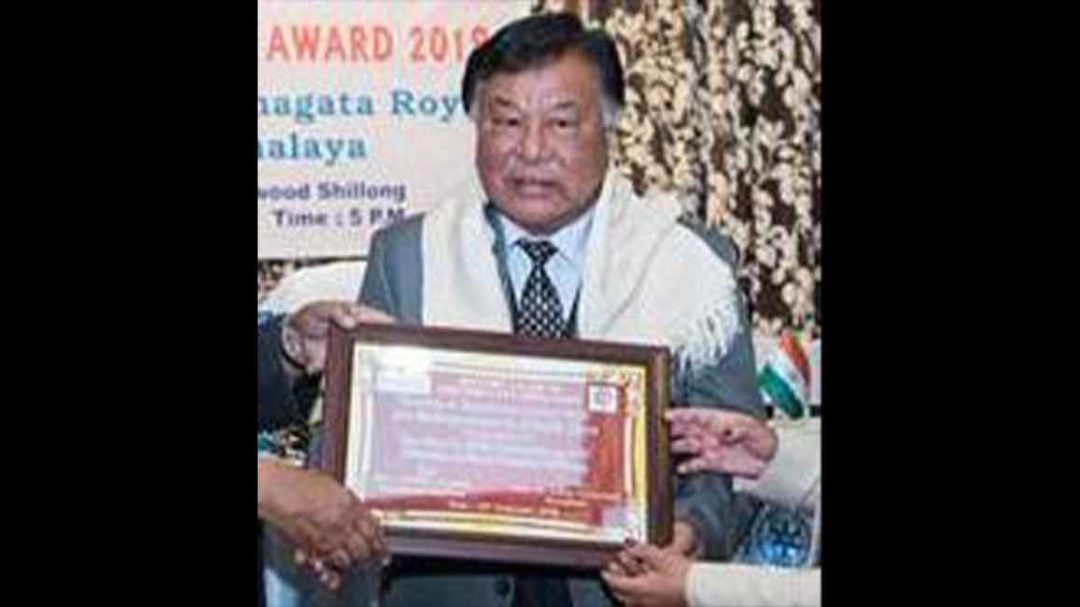Bethany Hospitals hosts third Dr. Sailo Memorial Oration with a focus on compassionate and sustainable healthcare

Bethany Hospitals hosted the Third Dr. John L. Sailo Ryntathiang Memorial Oration on 10th October, 2024 at Winderemere Hotel, an annual event to commemorate the legacy and remarkable contributions of the hospital’s founder, (L) Dr. John L. Sailo Ryntathiang. The red-carpet event saw the presence of eminent guests, including doctors and staff from Bethany Hospital, alongside distinguished invitees from across the state.
The oration was delivered by Dr. R. Ravi Kannan, Director of Cachar Cancer Hospital and Research Centre, Silchar, Padma Shri and Ramon Magsaysay Awardee, known for his ground-breaking work in affordable cancer care for marginalized communities. Dr. Kannan’s address centred around the theme of “Compassion, Sustainability and Innovation in Healthcare”, reflecting on his transformative journey at Cachar Cancer Hospital, which has evolved from a 20-bed facility to a 146-bed hospital with five campuses, all while embracing a pro-poor model. During his speech, Dr. Kannan shared inspiring anecdotes about the challenges faced by his institution and the strategies employed to decentralize healthcare services. He emphasized the significance of frugal innovation and the need for healthcare providers to be compassionate and responsive to the needs of patients, especially the poor and underserved. Recognizing that many daily wage earners forgo treatment due to high costs and the financial burden of hospital visits, Dr. Kannan introduced measures to fast-track treatment, enabling patients to complete diagnostics and consultations in a single day.
Dr. Kannan further discussed the PEP model (Palliative Care, Early Detection, Prevention), which engages with communities to provide not only in treatment but awareness and education on cancer prevention. He emphasized the importance of decentralizing healthcare through satellite centres to bring care closer to patients’ homes, reducing the need for long, costly travel. Through his PEP (Palliative Care, Early Detection, Prevention) model, they have empowered communities to recognize early signs of cancer, preventing the disease from reaching advanced stages.
Dr. Kannan shared how technology has been a great equalizer in the medical field. He explained how Cachar Cancer Hospital has leveraged telemedicine and cloud-based ICU systems to overcome resource limitations and deliver specialized care remotely. “We put high-definition cameras in our ICU, and a group of critical care specialists in Bangalore monitor the patients remotely. This cloud ICU system has saved lives, including during the height of the COVID-19 pandemic,” Dr. Kannan stated, illustrating the hospital’s innovative approach to bridging the healthcare gap.

He discussed various forms of sustainability that are crucial for the long-term viability of healthcare systems. Dr. Kannan highlighted environmental sustainability by advocating for eco-friendly practices within healthcare settings, such as waste reduction and efficient resource management. He also spoke about social sustainability, emphasizing the importance of community engagement and education to foster a culture of health awareness and preventive care. He addressed human resource sustainability, stressing the need to develop a dedicated workforce in healthcare. Dr. Kannan underscored the complexity of staffing a cancer hospital, explaining the multifaceted requirements for a competent medical team. For instance, to operate effectively, a cancer hospital needs various specialized roles, such as surgical oncologists, head and neck surgeons, gynaecologists, radiation oncologists, medical oncologists, pathologists, and radiologists. Dr. Kannan emphasized investing in the training and well-being of healthcare professionals to ensure they are equipped to deliver high-quality care. He noted that the demand for care often outstrips the available resources, leading to a “catch-22” situation where healthcare professionals face immense pressure to perform effectively in both outpatient and inpatient settings. To alleviate this burden, Dr. Kannan advocated for task shifting and task sharing. He emphasized that certain tasks can be effectively handled by less specialized staff by investing in training specific skills for the existing workforce. Lastly, he touched on economic sustainability, advocating for models that ensure healthcare services remain affordable and accessible for all, particularly marginalized populations.
Concluding his address, Dr. Kannan offered profound reflections on the theme of inequality, which resonated deeply with the audience: “The truth is, we’re all created unequal. Whatever democracy might say, we’re not really equal. Some of us have more wealth. Some of us have more skills. Some of us have more opportunities. None of us chose the families we were born into. We were thrown into families that made it possible for us to be here. And I often wonder why that is so.” He continued: “We were endowed unequally because whoever made this decision said that we would probably hold what we have in trust, use what is needed for ourselves, and the vast amount of excess we have, we will use for the benefit of those who do not have. I think that reflects the philosophy of Dr. Sailo.”
The event was further enriched by enchanting musical performances from Benedict Skhemlang Hynniewta and his team, as well as the violinist Emidaka Mabel Lyngdoh and her team.

Leave a Reply